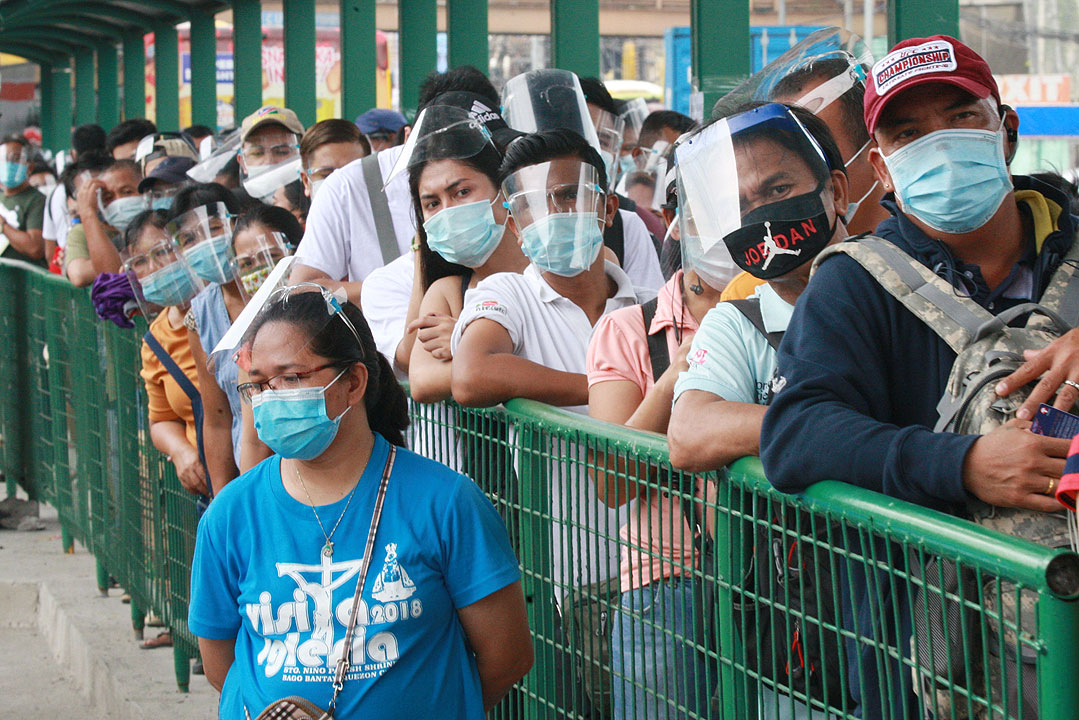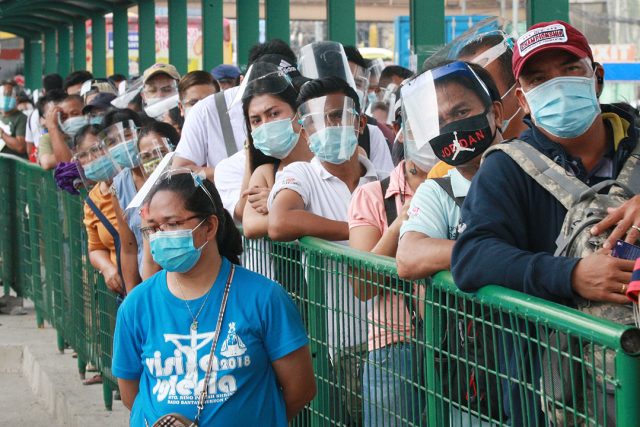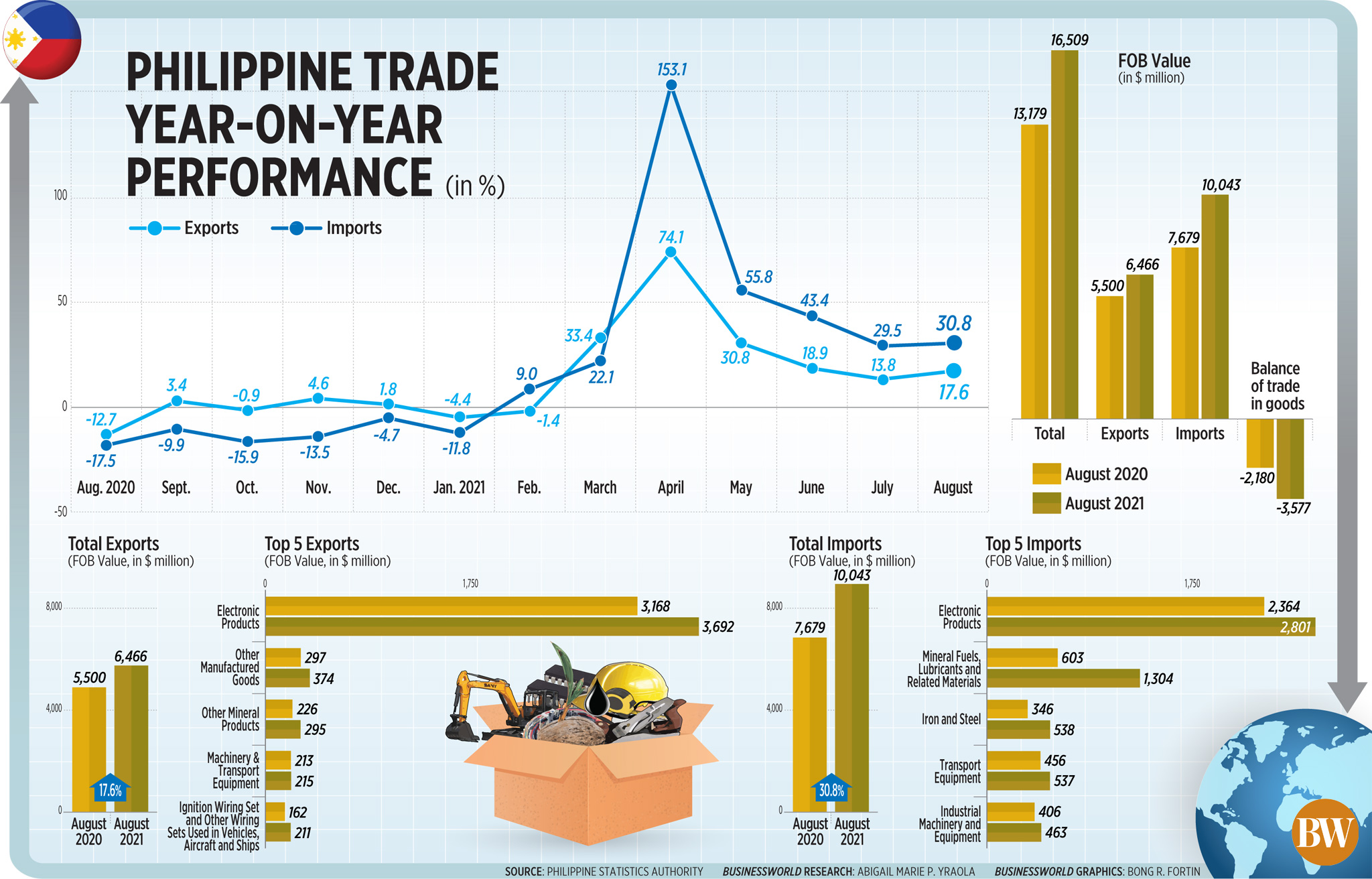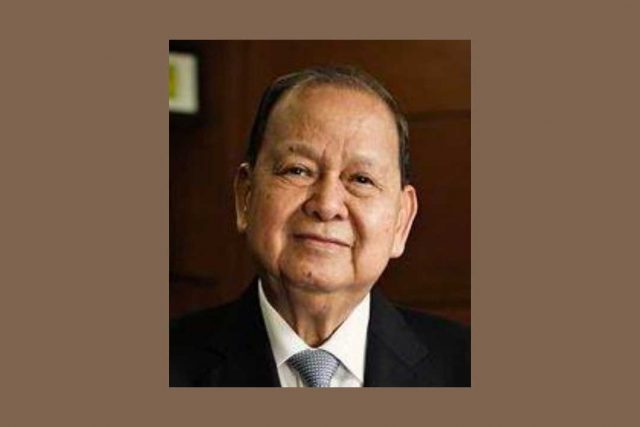PHL growth forecast slashed by IMF

By Luz Wendy T. Noble, Reporter
THE INTERNATIONAL Monetary Fund (IMF) downgraded its forecast for the Philippines’ economic growth this year after a recent surge in coronavirus infections that could have slowed the pace of recovery.
Philippine economy is now expected to grow by 3.2% this year, lower than the IMF’s 5.4% growth projection given in June, according to its World Economic Outlook published on Tuesday. This is also below the government’s 4-5% full-year target.
The Philippine gross domestic product (GDP) contracted by a record 9.6% in 2020.
“The economic recovery in the second half of 2021 is expected to be slower than previously expected, due to a third wave of coronavirus disease 2019 (COVID-19) starting from August and increased uncertainty,” Thomas Helbling, division chief of IMF’s Asia Pacific Department, said in an e-mail.
Metro Manila was placed under the strictest form of lockdown for two weeks in August to curb a spike in COVID-19 cases driven by the more infectious Delta variant.
Mr. Helbling also attributed the IMF’s more pessimistic outlook on the Philippines to a weaker-than-anticipated recovery.
Second-quarter GDP grew by 11.8% year on year, bringing average growth to 3.7% in the first half.
“Real GDP growth in second quarter of 2021 was weaker than expected by IMF staff. Instead of increasing by 0.5% (quarter on quarter, on a seasonally adjusted basis), it declined by 1.3%. This outcome seems to reflect a stronger negative impact of the second COVID-19 wave,” he said.
The IMF also lowered its Philippine GDP growth forecast for 2022 to 6.3% from 7%. This is also below the 7-9% target set by the government.
“Continued policy support, vaccine rollout and global growth will support a stronger economic recovery in 2022. The downward revision of GDP projection in 2022 mainly reflects the mechanical impact of the weaker economic recovery in 2021,” Mr. Helbling said.
Latest data from the Johns Hopkins University showed only 21.45% of the Philippine population has been fully vaccinated against COVID-19.
Mr. Helbling said continued policy support from both fiscal and monetary authorities would be “central to economic recovery in the near term.”
“A stronger global economy will be another crucial element to the economic recovery,” he added.
Inflation is expected to hit 4.3% this year, faster than the previous 4.2% forecast and above the 2-4% target by the central bank. The IMF kept its 2022 average inflation forecast at 3%.
GLOBAL RECOVERY
Like the Philippines, other Southeast Asian countries have struggled to deal with the Delta-driven surge this year, prompting renewed lockdowns.
The IMF’s 2021 growth outlook for the Philippines is at par with Indonesia (3.2%) but faster than Thailand (1%). However, the pace of growth is expected to be slower than Vietnam (3.8%) and Malaysia (3.5%).
ASEAN-5, which includes Indonesia, Thailand, Vietnam, the Philippines, and Malaysia, is likely to expand by 2.9% this year and by 5.8% in 2022, the IMF said.
The Washington-based lender now expects the global economy to grow by 5.9% in 2021, from a 6% forecast earlier.
“The fault lines opened up by the COVID-19 are looking more persistent, and near-term divergences are expected to leave lasting imprints on medium-term performance. Vaccine access and early policy support are the principal drivers of the gaps,” the IMF said in its World Economic Outlook.
While advanced economies are likely to surpass their pre-pandemic medium-term projections due to sizeable policy support, the IMF said emerging economies are still struggling to contain outbreaks due to the sluggish pace of vaccination.
“Persistent output losses are anticipated for the emerging market and developing economy group due to slower vaccine rollouts and generally less policy support compared to advanced economies,” it said.
The IMF said the new assumptions are based on the projection that some emerging economies would also have broad vaccine access within this year. It warned that the risk of more aggressive COVID-19 variants before widespread vaccination is reached remains a major concern.













